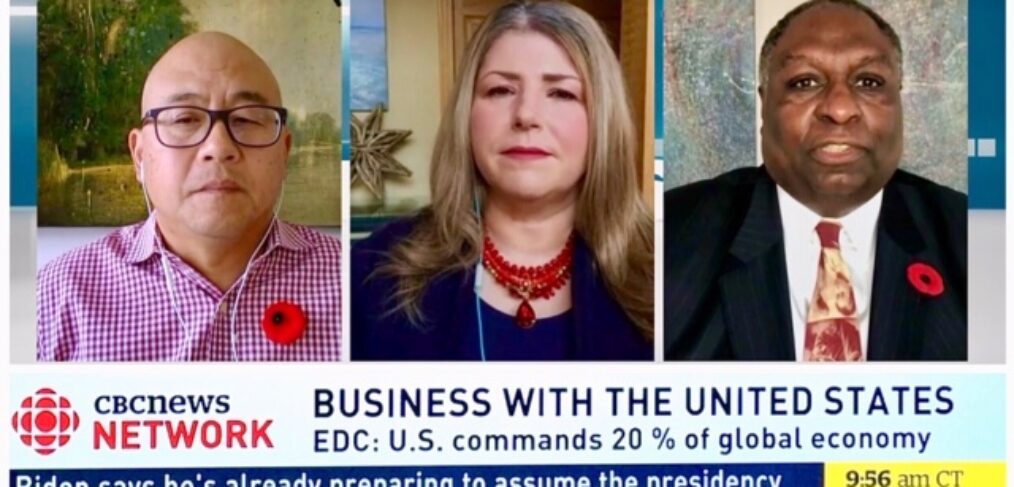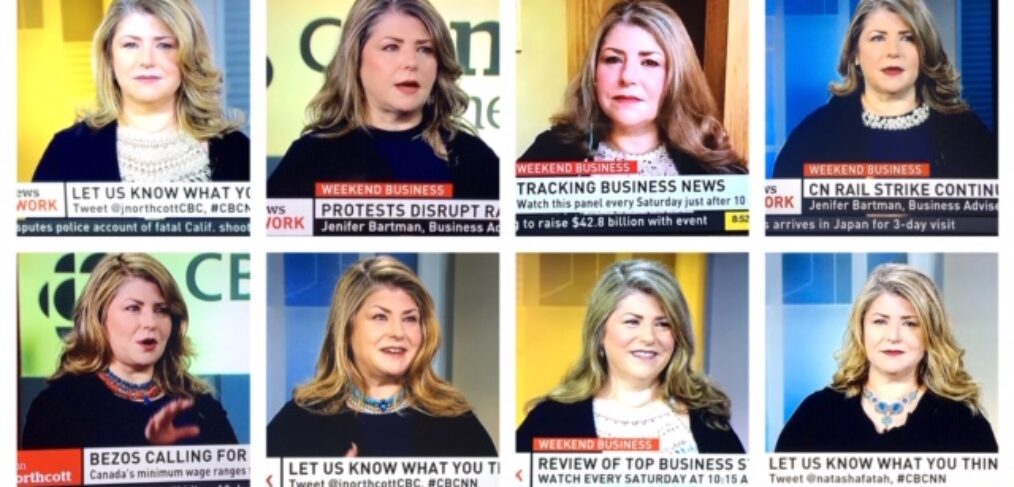What a historic day to join the CBC News Network Weekend Business Panel, within a mere hour of Joe Biden and Kamala Harris being projected to win the Presidency and Vice Presidency of the United States. As someone who has closely followed US politics for decades, it’s a pleasure to have this opportunity.
What could a Biden Administration mean to Canadian companies? With the US as our largest trading partner by far, Canada has faced uncertainty over the last four years, from an administration that imposed tariffs on Canadian steel and aluminum imports, bluster around the negotiation of NAFTA 2.0 (both have been Business Panel topics), as well as limited attention overall, focusing instead on countries outside of traditional US allies. The US response to COVID19 has been devastating, with the highest number of cases and deaths globally, resulting in significant job losses, companies closing, and many households in peril. What could the future look like?
Once the proverbial dust settles in areas such as election related legal disputes and the transition of power (which might not be particularly easy, depending on whether the current administration decides to continue to fight or, instead, brush off the White House as not being particularly important and move on to something else), it’s a reasonable expectation that a Biden Administration would quickly move to combat and manage the coronavirus in a manner that has not been seen in the US thus far, as well as reconnect with traditional allies who have been of limited focus over the last four years. Joe Biden is well suited to this type of conversation, recalling childhood advice to “keep the faith”, but to also spread it around.
Canada and its business community should expect to see a better level of stability with its neighbour and a more collaborative, productive relationship. It’s difficult to predict the impact on the longstanding Keystone XL pipeline, however, politicians have a way of keeping their options open, especially when times are tough. Infrastructure and similar projects have the potential to create a significant number of jobs, which is especially relevant, given the massive number of job losses in 2020 due to COVID19. Also, expect an increased focus on “kitchen table” issues, including employment and wages, as we know that these are areas that are very close to Joe Biden’s heart, as the stories of job losses in his own family have been told many times.
It has been said that changes in leadership have the potential to bring a level of uncertainty that is counterproductive and risky. In this case, the circumstances may be different, as what has been a tumultuous last four years fades into the past; but, we are not quite there yet. The US remains as a country that is highly divided, bringing to mind an important reality that experienced business leaders know: deals often get done “in the middle”, when parties are able to arrive at solutions that allow both sides to win. In the absence of the necessary skills and experience to arrive at this point, little is achieved, with potential and lost opportunity being left on the table. Think about the practical implications of what is lost in this type of situation, including in terms of new paths forward and dollars and cents. In the meantime, all eyes will be on what will unfold up until Inauguration Day in January.
Finally, in advance of Remembrance Day on November 11th, we honour the service and sacrifice of those who have given so much, allowing us to be True North, Strong and Free, every single day. We will remember them.













